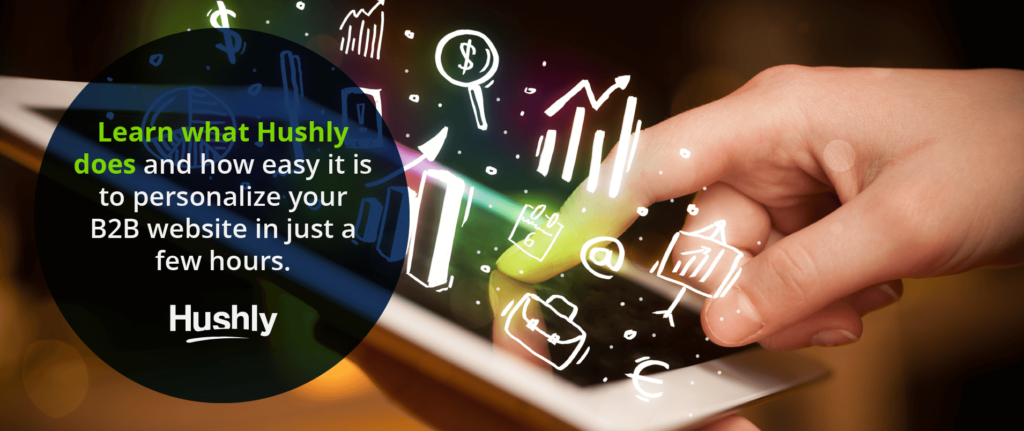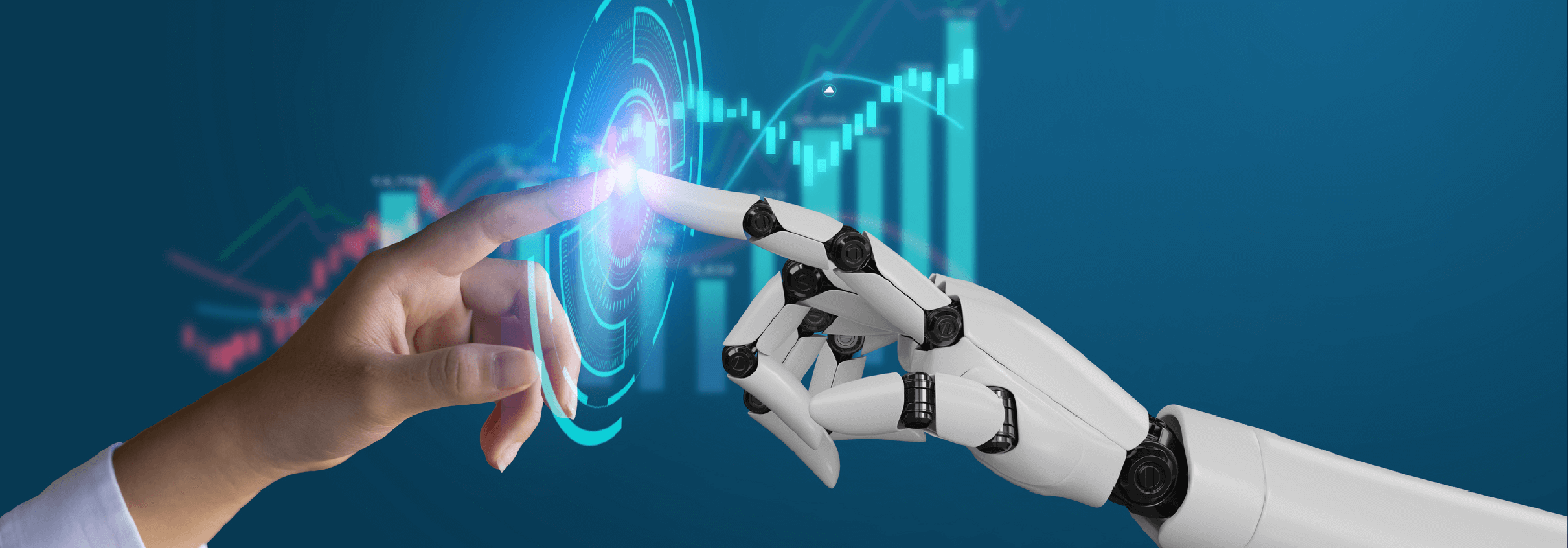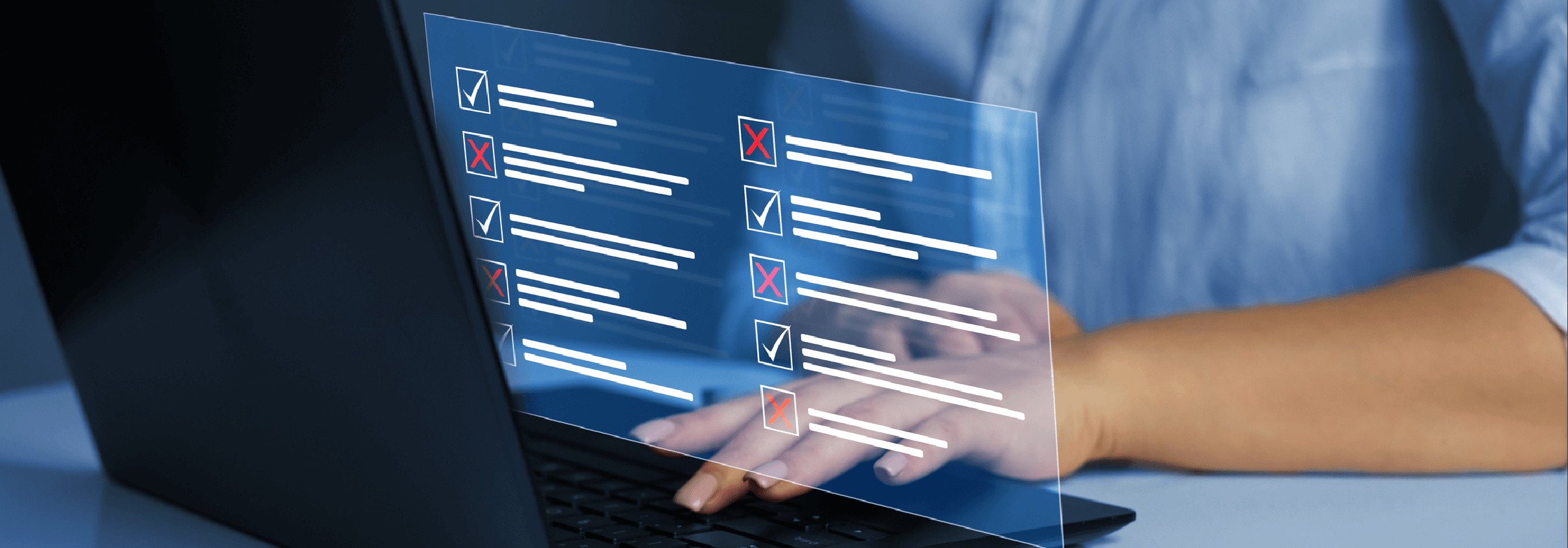In 2021, personalization takes no prisoners among consumer products:
- Supplements and vitamins
- Facewash and skincare
- Workout routines
- Oreos
- Sneakers
- Makeup pallets
- Protein powders
You might say, “These are customized products themselves, not marketing. Plus, custom acne cleanser has nothing to do with B2B marketing.”
Don’t be so sure.
People expect personalization everywhere – and not just any personalization. They demand accurate personalization.
Look at it this way.
What’s better than receiving an email containing a full line of curated skincare products from different brands, all picked with love (from AI) based on your needs and buying behavior?
Well, customizing your own made-from-scratch skincare line, of course.
It’s only the logical next step after personalized marketing with curated content and products.
The marketing personalization technology came first and it’s no doubt directly to thank for the rise of completely customized everything in consumer products.
Your business buyers are the same person whether they’re discussing workplace productivity problems on a Zoom call or searching Pinterest for a natural supplement to relieve their inflammation.
Despite all the advancements, only 22% of consumers are happy with brand personalization.
B2Bs look about the same: Only 20% effectively personalize at scale despite 85% of buyers expecting it.
Now that we know how important personalization is and how poorly most brands are managing it, where do we go from here?
First, it’s critical to understand how B2B differs from B2C in terms of marketing personalization. This understanding will let you build on personalization’s core overlapping factors while adjusting the context for business.
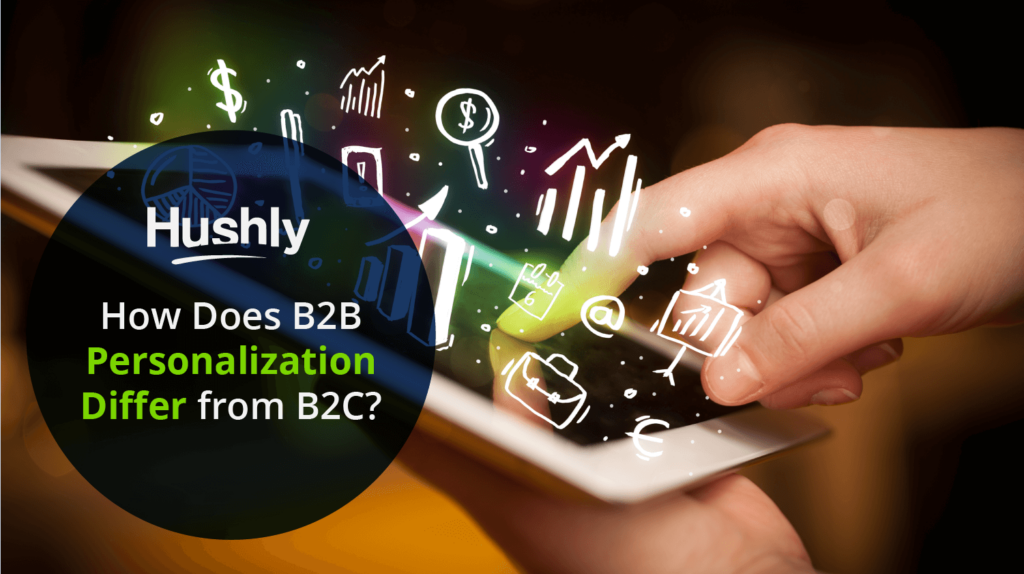
How is B2B Personalization Similar to B2C?
The idea behind personalization is remarkably simple: People want relevant and useful things to either fix problems or improve their lives.
In that way, it’s easy to see how B2B vs. B2C personalization should follow the same strategy:
- Finding the top priority or pain point to help their audience.
- Choosing the best routes, tactics, and content to provide that help.
- Leveraging data to understand your audience, what they need now, and how/where to help.
How Does B2B Personalization Differ from B2C?
Most B2Bs struggle with effective personalization due to the last point on the list above: data.
Low-quality, siloed, outdated, incomplete, and otherwise incorrect data is the number one killer of every personalization strategy.
This lack of data also leads to a general misunderstanding of how to use personalization in B2B. How can you personalize a website visitor’s experience if you used bad intel to create the content? You can’t.
Lots of B2B marketers also seem to be applying B2C journey characteristics to their B2B personalization.
Always start with what you know about your audience. Specifically, keep these key ideas in mind to understand how B2B differs from B2C marketing personalization.
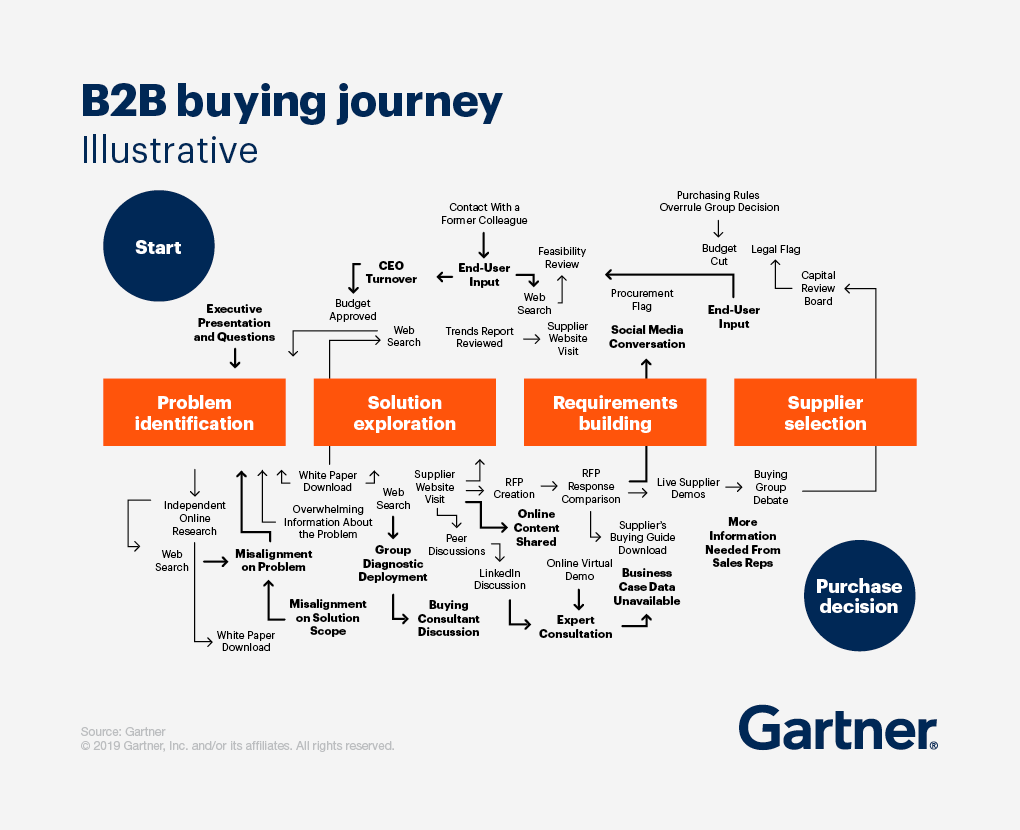
Consumer Journeys are Linear – Buyer Journeys are Anything But
Aside from a few outliers, customer journeys follow a specific linear progression. It’s even easier to map customer journeys within verticals and market segments.
The B2B journey is convoluted and impossible to predict. That’s why AI real-time personalization tools are critical.
Buyer Journeys Last Much Longer Than Consumer Journeys
Not only are they shorter but each B2C industry’s journey sticks to a uniform length – except for high-cost industries like leisure travel.
Buyer journeys can drag on for months – or even years – as stakeholders research. Your best chance at journey uniformity lies within individual companies and you’ll use account-based marketing to personalize.
B2B Personalization Targets Several People – B2C is Individual
Consumer brands might factor spouses into the deliberation process and even then, only for high-value items.
With B2B, even one-to-one ABM content must consider how the individual uses the product/service within a team context. You’re usually personalizing for groups instead.
Consumer Products Usually Have One Use – B2B Use Cases Depend on Role
Personalizing for consumers usually involves picking one main pain point and how your brand can fix it. Most consumer products only have one main use case.
As B2B, however, you must market a unique benefit to each role at a company from end-users up to C-suite.
Customer Experience Matters More for B2B Marketing and Personalization
A holistic customer experience might not matter for water bottles, but it sure does for enterprise software. 86% of buyers are even willing to pay more for the same product if one offers a better experience.
That’s why it’s so important to demonstrate your commitment to personalization and service immediately.
B2B Personalization Needs More High-Quality Content Than B2C
Do you think an average consumer reads 13 blogs before buying a new yoga mat? One or two maybe, but the average business buyer reads 13 during their journey.
Use content personalization to streamline your buyer’s vetting process and you’re sure to make an awesome first impression.
Consumer Personalization Must Prioritize Timing – B2B Personalization, Trust
Half of effective consumer marketing personalization involves just showing up at the right time. Hit them with an email on payday letting them know the couch they’ve been eyeing is 40% off and you’re golden.
Emotion matters more in B2B marketing than most people think but it’s rarely impulsive. B2B buyers plan for years and decades so establishing trust via personalization is paramount.
B2B Marketing Personalization Shouldn’t End After the Sale
B2B companies must invest more into post-sale customer experience than consumer brands due to the high cost of acquiring new clients.
Use personalization to understand how customers use your product, how they can squeeze more value, and what they can improve for better results.
Choose the Tools to Build B2B Personalization That Rivals B2C
Whether B2B vs. B2C marketing, it doesn’t matter: Personalization is only available to marketers today thanks to technology.
AI-driven content, data, and website tools let you collect accurate information, create a seamless website experience, and offer personalized content suggestions for every visitor.
Countless B2B companies trust Hushly’s innovative suite of personalization tools because our tech is designed to keep your data accurate in the process. Plus, you never have to sacrifice the user experience to collect lead data – not even a tiny bit!
Learn what Hushly does and how easy it is to personalize your B2B website in just a few hours.

